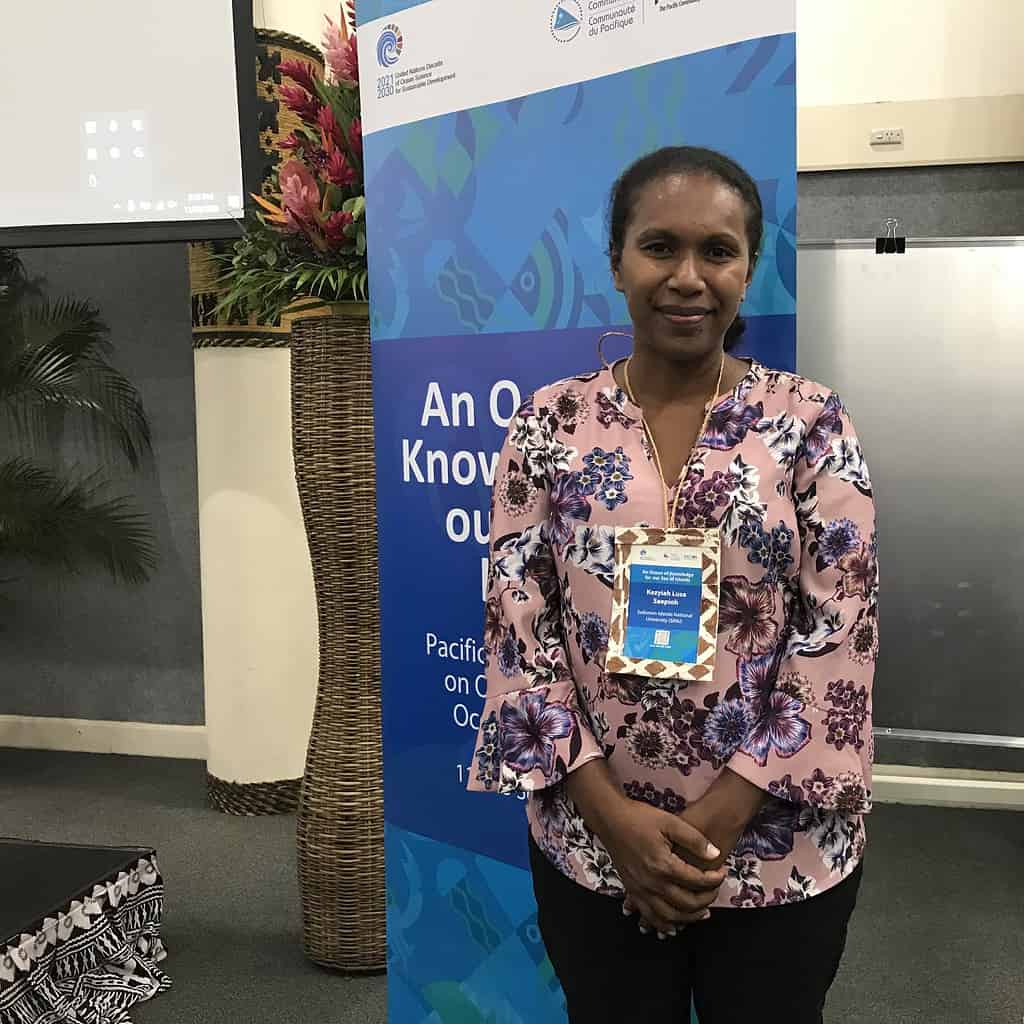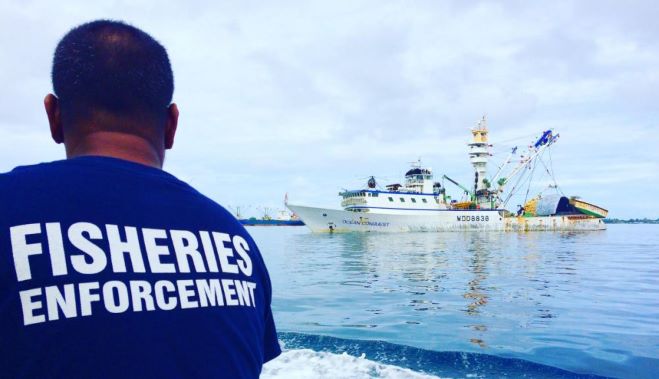Very little attention has been given to addressing human rights violations within the fishing industry in the Pacific, according to new research unveiled at a first-of-its-kind ocean science meeting underway in Nadi, Fiji this week.
A study titled, ‘Fishing Practices in Pacific Island Countries: A human rights perspective’ is currently in review stage but academics from the Solomon Islands used the inaugural Pacific Islands Conference on Ocean Science and Ocean Management underway in Nadi to highlight the issue that “permeates the multi-billion-dollar tuna industry”.
One of the report’s co-authors, Kezyiah Lusa Saepioh, highlighted during her presentation on day one of the conference on Monday that the aim of the research is to “examine the nature and drivers of human rights violations in the industry and identify policy measures that can contribute to management efforts at addressing the challenge”.

Saepioh said the research addressed 18 reported cases of human rights violations in the fishing industry in Papua New Guinea, Fiji, the Federated States of Micronesia, and others The information was collected with the help of international human rights organisations including the International Organization for Migration (IOM) in Honiara.
Referring to fishing vessels involved in human trafficking in Pacific waters, Saepioh said the research “places human rights at the centre of the Pacific Islands tuna industry in a broader context of fishing activities, specifically within the context of human rights abuses in equality and socio-economic exclusion from the frontline players. We examine the entire value chain from vessel registration to the sale of fish products”.
Saepioh said the research recommends “the need for international commitment, particularly ratification, and implementation of some of the international instruments. For example, the International Labour Organization C188 to address forced labour in the industry”. She said the Solomon Islands and other Pacific Island countries have yet to ratify the agreement.
“There’s also a need for the establishment of a coordinating framework to detect and ensure improved regional equitable access to social services, particularly for the victims, whether they are locals or foreigners.”
To champion this human rights issue on a broader scale, Saepioh said that the “Western and Central Pacific Fisheries Commission (WCPFC) should be the leading organisation and of course, with important support and contribution at the sub-regional level including Parties to the Nauru Agreement (PNA), Forum Fisheries Agency (FFA) and others”.
On the community level, “there’s a need to do more awareness relating to the mechanisms that would help to bring the perpetrators to justice. For example, local girls who normally go to the commercial boats at the port… they don’t normally come out to identify themselves. It’s perhaps related to socio-economic challenges such as the lack of alternative livelihoods and all that”, Saepioh told Islands Business.
“We found… perhaps contributing to the limited data is this culture of ‘Wan Tok’ – like we are protecting our families, particularly relating to human trafficking and prostitution. That is also a component from the study, that [victims] weren’t able to come out to admit that they are victims, so that the parents or the family just keep it under the carpet.
“So, one of the policy options [from the study] is we need to have a more aligned framework to help [victims] address the issue, where they communicate the abuses openly and then support them if they require some assistance.
“It’s just the tip of the iceberg. There’s still a lot of work to be done.”
The conference continues today until Friday, September 15th.
